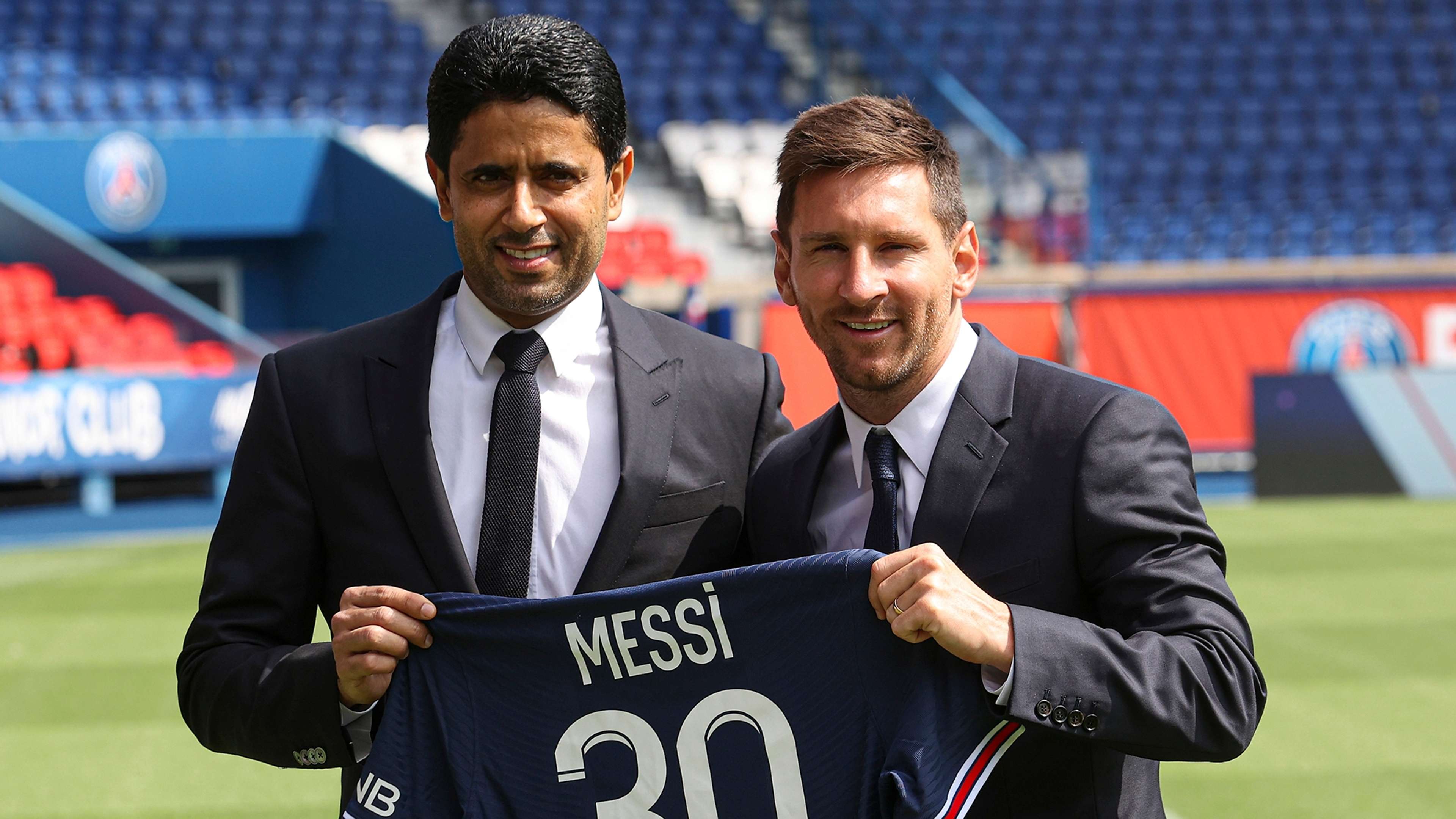A lunch in Paris in November 2010 altered the course of football history.
Before dining with French Prime Minister Nicolas Sarkozy and the crown prince of Qatar Tamim bin Hamad al-Thani at the Elysee Palace, UEFA president Michel Platini had given American officials the impression that he would back the United States' bid to host the 2022 World Cup.
- Take a look at your expert's reviews of the top UK betting sites in 2023
However, just under a fortnight later, the Frenchman threw his support behind Qatar, playing a key role in the Gulf state's shock success.
Platini was, of course, perfectly entitled to change his mind but his U-turn came as a massive surprise, primarily because he had previously claimed that a Qatari World Cup would be "a catastrophe".
The former Ballon d'Or winner maintains that nobody at the Elysee Palace that day asked him to back one bid over another.
Next Match
"I always vote for what is good for football, not for myself, not for France," Platini – who was later banned from all football activity organised by FIFA until 2023 following an ethics investigation related to a payment made to former FIFA president Sepp Blatter – told The Guardian in 2013.
Platini did reveal, though, that not only was he aware of Sarkozy's support for the Qatari World Cup bid, he also knew that his compatriot "wanted the people from Qatar to buy Paris Saint-Germain".
It was clear that a country of just 2.6 million people, but with the third-largest natural gas and oil reserves on the planet, was deadly serious about making a major impact on the global game.
So it came to pass that in June 2011, just over six months after the 2022 World Cup vote, Tamim bin Hamad Al Thani bought 70 per cent of the PSG's shares through state-run shareholding organization Qatar Sports Investments (QSI), a subsidiary of Qatar Investment Authority (QIA), the country's sovereign wealth fund.
PSG have since become one of the game's biggest clubs thanks to their almost unrivalled spending power. Indeed, on Wednesday evening, in a Champions League group-stage clash with Club Brugge, PSG could field a forward line of Neymar, Kylian Mbappe and Lionel Messi.
QSI's objective for the 2021-22 campaign is clear: to win a first Champions League title with PSG in the same year that Qatar hosts the World Cup. It would represent the perfect conclusion to a bold, decade-long attempt to establish Qatar as a major force in football.
PSG have obviously been the main beneficiaries of this initiative. Before the arrival of QSI a decade ago, the capital club had won just two Ligue 1 titles. Now they have nine, while they also reached the final of the Champions League for the first time last season.
Their success is often solely attributed to the more than €1.3 billion (£1.1bn/$1.5bn) QSI have lavished on new signings.
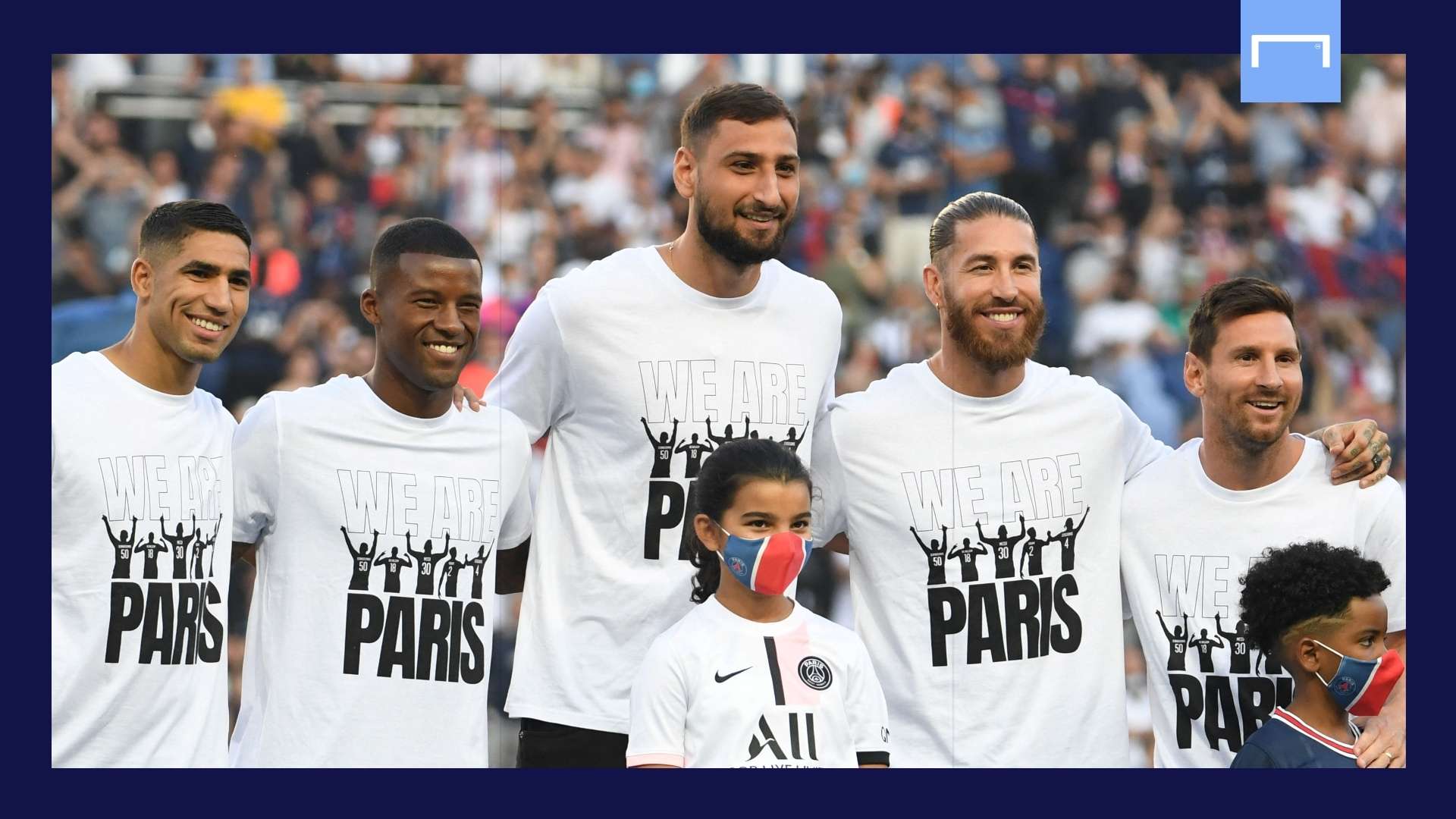 Getty/Goal
Getty/GoalNeymar and Mbappe are the two most expensive players in history, while Messi's arrival from Barcelona has already been described as the 'transfer of the century', with the Argentine set to earn €35 million (£30/$41m) after tax.
But it's not just PSG who have enjoyed a remarkable rise to prominence over the past decade. Their president, Nasser Al-Khelaifi, is now regarded by many as the most powerful man in football, which is not bad going for a former tennis player who barely managed to break into the world's top 1000 during his playing days.
However, it was through tennis that Al-Khelaifi befriended Sheikh Tamim bin Hamad Al-Thani, who is now the emir of Qatar. Thanks to the support of Tamim, 'NAK', as he is known to those close to him, became the president of the Qatar Tennis Federation in 2008, and then chairman of QSI three years later.
So, when the latter bought PSG in 2011, Al-Khelaifi was given the top job at Parc des Princes.
At his first media appearance, he insisted that the new project wouldn't be about signing existing superstars like Messi, but trying to unearth the next generation of gems. However, that didn't stop PSG from acquiring the likes of Zlatan Ibrahimovic and David Beckham to boost their profile on and off the field.
Al-Khelaifi's commercial goal was to turn the club into a household name across the globe, like adidas and Nike, as underlined by PSG's partnership with Air Jordan – a deal he masterminded in an attempt to capitalise on the huge interest in basketball in the North American and Asian markets.
He also looked to the NBA for inspiration when it came to catering for and communicating with fans at the stadium. Al-Khelaifi closely observed what would happen at half-time, how they were selling food, how they would take orders, what they were wearing, whether fans could order from their seats.
Those close to him say he is obsessed with the smallest details and compare him to a sponge, constantly soaking up information, always pushing PSG to replicate the field-leading work being done elsewhere or, more often than not, asking whether they can do it better.
The emphasis is always on innovation, coming up with new ways to create new revenue streams.
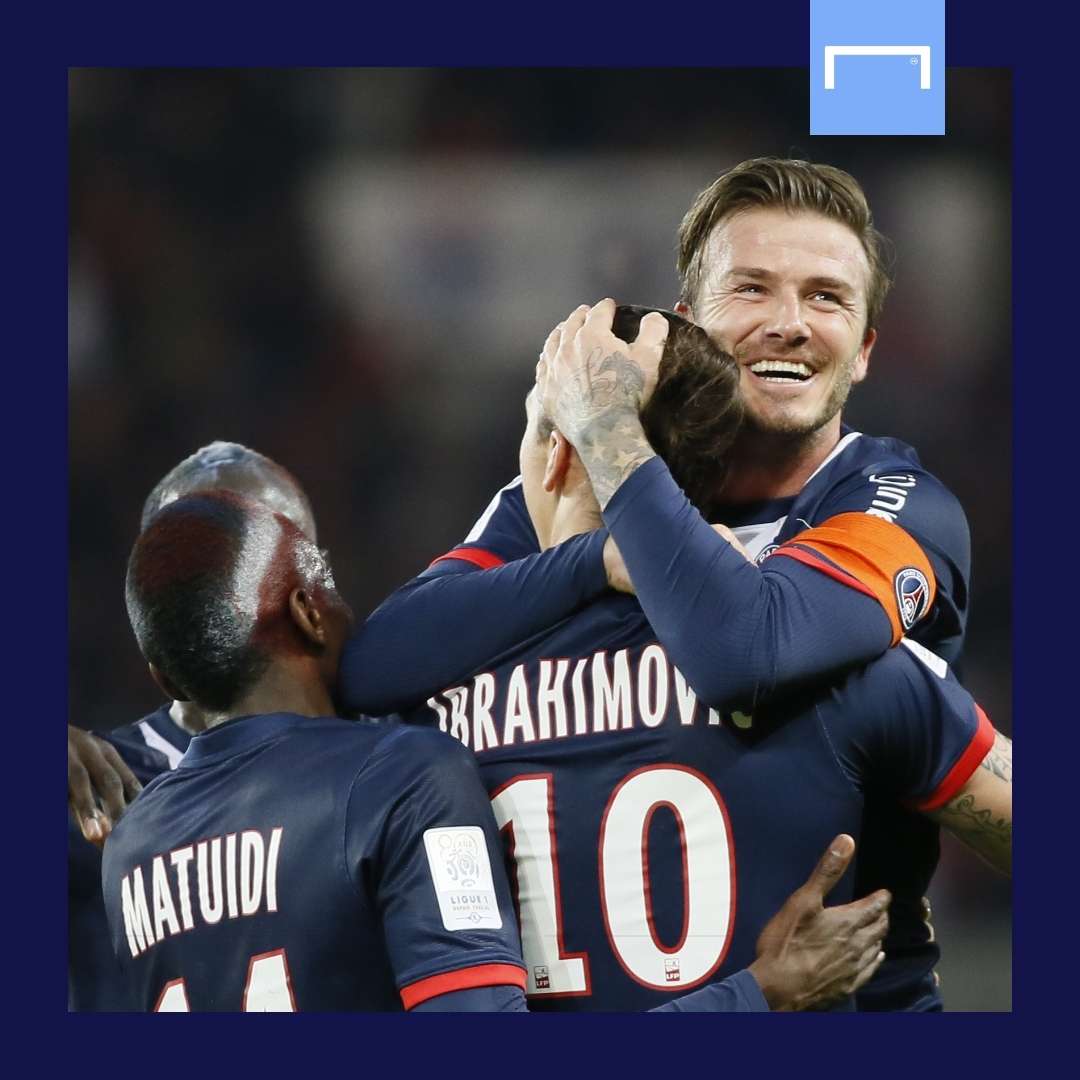 Getty/Goal
Getty/GoalAl-Khelaifi's pursuit of perfection off the field unsurprisingly led to success on it.
After being sensationally beaten to the Ligue 1 title by Montpellier in May 2012, the Parisians slowly but surely began dominating domestically, while also emerging as a force to be reckoned with in the international arena.
However, there were, naturally, teething problems in a project that was still in its infancy.
"QSI has definitely learned a lot over time," CBS Sports Golazo's French correspondent Jonathan Johnson tells Goal.
"Nasser himself has always been very invested in what PSG are doing. He's always made regular media appearances. He's always at the forefront of every announcement of a new sponsorship deal. But the way they've been received by the press has not always been terribly positive.
"I remember in one particular interview, Nasser was asked about PSG's ability to spend a lot of money on big signings and he said, 'The players that I want, I will have.' It set the wrong tone with the press.
"So, they had to learn from those kinds of moments and repair their image from time to time, certainly in the earlier years when they were being questioned over FFP."
Indeed, as PSG quickly set about signing some of the game's top talents, there were allegations that they were not adhering to UEFA's Financial Fair Play (FFP) regulations, which were introduced in an attempt to control spending among Europe's clubs.
"This FFP issue has been essentially hanging over PSG since the Qatari takeover," Tariq Panja of the New York Times tells Goal. "[They signed] a massive sponsorship from the Qatar Tourist Authority (QTA), which almost doubled PSG's balance sheet overnight.
"The QTA said they needed to promote the country and they valued PSG's profile very highly. UEFA intervened, though, ruling in 2014 that they'd breached FFP rules, but PSG agreed a settlement with Gianni Infantino's UEFA where they were penalised but not punished in any significant way.
"They just had their Champions League squad reduced and were fined €60m (£51m/$71m)."
The sanctions certainly didn't hinder PSG's ambitious plans to conquer Europe.
On August 3, 2017, they obliterated the transfer world record by paying the €222m (£189m/$262m) buy-out clause in Neymar's Barcelona contract. Precisely four weeks later, they agreed a loan deal with Monaco for Kylian Mbappe with an obligation to buy for €180m (£154m/$212m).
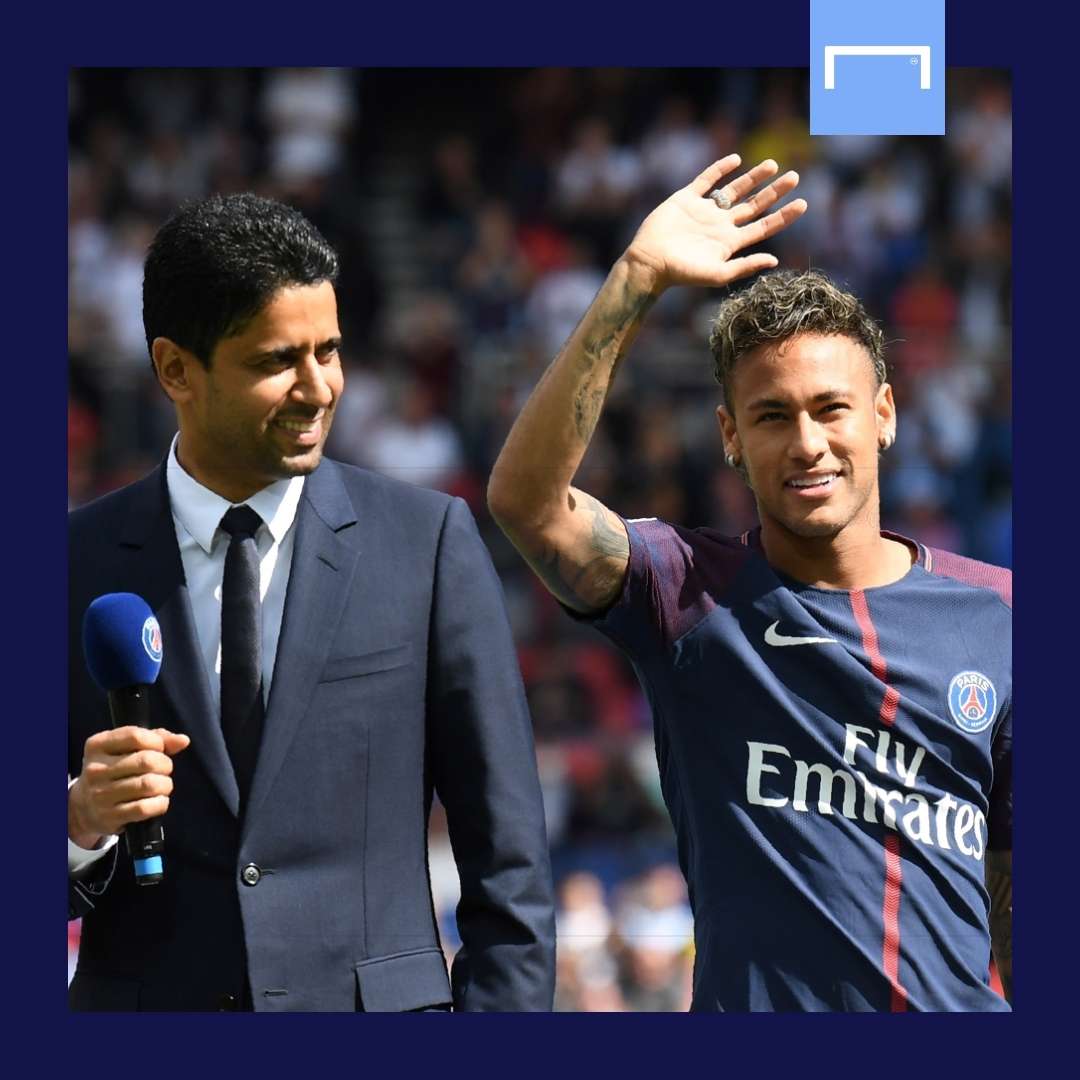 Getty/Goal
Getty/Goal"UEFA president Aleksander Ceferin promised to look into this spending spree," Panja explains, "and this investigatory panel was set up. They went through it all meticulously over a long period of time but the members of the panel were split over what to do.
"And the thing you must understand about how FFP works, is that you have a panel deliberating over cases but one person, the chairman, has complete authority to decide if there's been a breach or not. That's a lot of pressure on one person.
"The members of the panel that wanted to do the job properly were like, 'This needs to be referred to the adjudicatory chamber as we think that there's been a breach.' But the chairman, in this case the former Belgian prime minister Yves Leterme, thought differently.
"He felt that nothing untoward had gone on, so much so, in fact, that when it went to the adjudicatory chamber, which was run at the time by a senior judge from Portugal called Jose Narciso da Cunha Rodrigues, he looked at it and basically said, in quite scathing terms, 'Looking at your report, and what you've concluded based on the evidence, you need to take this back. This isn't up to scratch. You've made a manifest error here'.
"But, at the same time, PSG take this process to the Court of Arbitration for Sport (CAS), and this is where it gets really interesting, because when you take a FFP case to CAS, the judge is out of the loop and the adjudicatory chamber is out of the loop. The entire case is handled by the UEFA administration.
"So, it is up to UEFA to decide how hard and how much it wants to defend its investigators and its judge. And, in this instance, UEFA sided with PSG's argument.
"PSG said that the judge took too long in referring the case back to the investigators. They said it had to be done within 10 days. The judge says you're misinterpreting the rules, and it's impossible that anyone could analyse an entire case in 10 days. It's not going to happen. The whole point is that you start the review process within 10 days.
"But UEFA agreed with PSG and the case was kicked out."
By this stage, it wasn't just PSG that were coming under intense scrutiny, but also Al-Khelaifi.
In May 2019, the PSG supremo was accused of validating an illicit payment of €3.1m (£2.7m/3.5m) to help Doha's bid to stage the athletics World Championship in 2017. However, his lawyer, Francis Szpiner, described the allegations as "totally inaccurate".
"Nasser Al-Khelaifi's name does not appear on any of the documents in the file," Szpiner told Le Parisien in reference to a case compiled by investigating judge Renaud van Ruymbeke in Paris.
"It should be noted that Nasser Al-Khelaifi's initial hearing was only the result of a regrettable confusion by the investigating magistrate. Nasser Al-Khelaifi has never been operationally involved in Doha's bid for the World Athletics Championships."
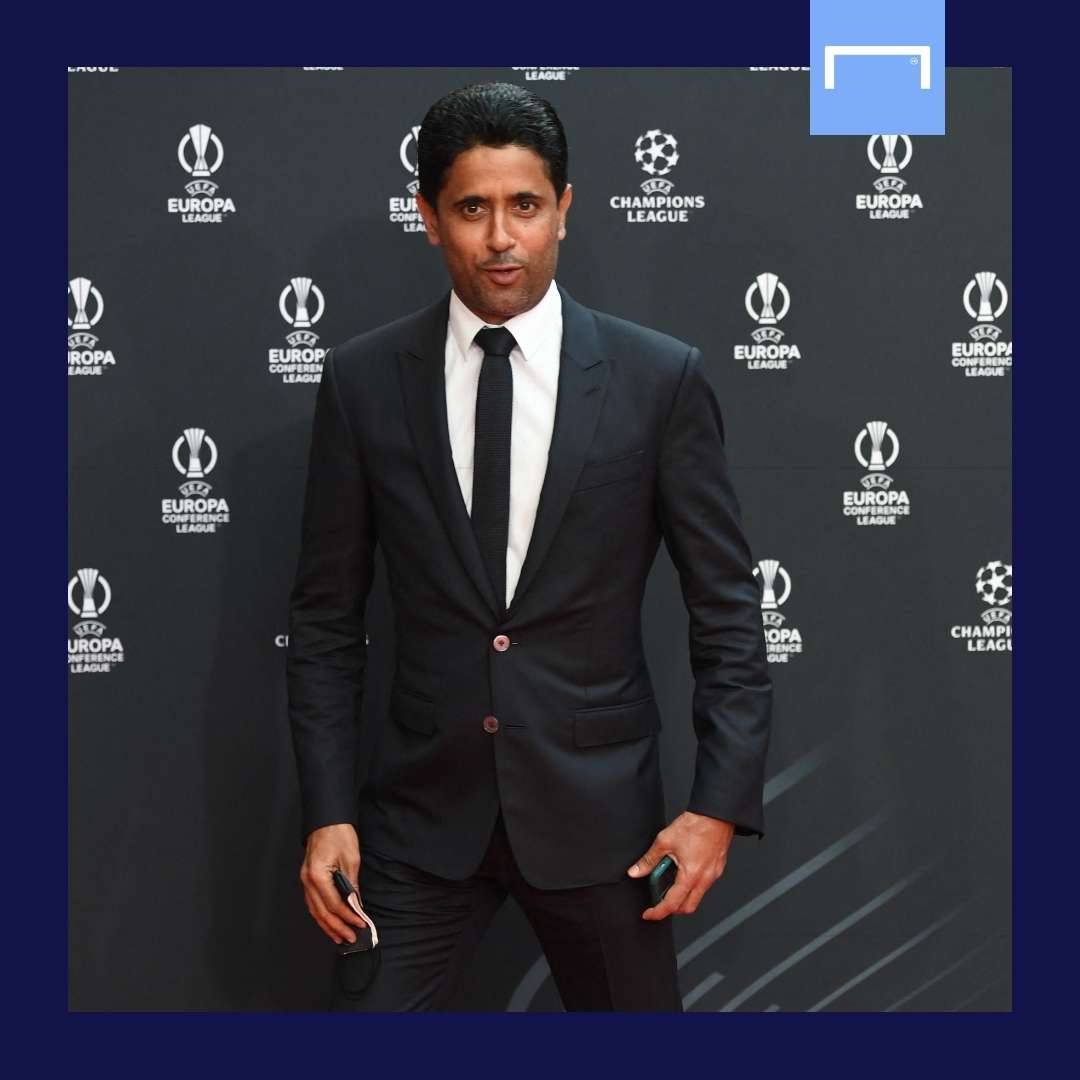 Getty/Goal
Getty/GoalAt the same time, Al-Khelaifi was also facing criminal allegations in Switzerland related to the award of World Cup broadcasting rights.
In his role as head of the beIN Media Group, Al-Khelaifi and a third party were alleged to have incited FIFA's former general secretary Jerome Valcke to accept bribes. However, in October of 2020, the Qatari was acquitted of “aggravated criminal mismanagement”.
A statement from PSG chief Al-Khelaifi read: "Today's verdict is a total vindication. After a relentless four-year campaign against me that ignored the basic facts and the law at every turn, I have finally, fully and completely cleared my name.
"It restores my faith in the rule of law and in due process, after four years of baseless allegations, fictitious charges and constant smears of my reputation – all of which have been proven to be completely and wholly unsubstantiated."
He added: "I can now devote all my energy to my various roles, which are all focused on building a positive future for world sport – at a time when the industry needs strong leadership the most."
PSG were undeniably in need of Al-Khelaifi's full attention at that point, with doubts increasing over both Neymar and Mbappe's commitment to the cause.
Rumours of unrest at the Parc des Princes dated back to 2018, and culminated in the team being dumped out of the Champions League last 16 by Ole Gunnar Solskjaer's Manchester United in March 2019.
Al-Khelaifi admitted that summer that a change in attitude was required, revealing that he wanted to bring an end to the "superstar behaviour" he believed was holding the club back.
“We all lacked character and authority [last season]," he told France Football. "And I must be the first to acknowledge it. I don't want to shirk my responsibilities. I am the first culprit. I don't want to hide or blame others, the players and the coach. If it hasn't worked out this season, it's primarily my fault. But that will change."
And it did.
Al-Khelaifi dismissed Antero Henrique as sporting director and re-hired Leonardo, who had previously held the position between 2011 and 2013.
“The group needs to regain a little rigour," the PSG president told France Football. "If a player makes a mistake, Leonardo will not spare his feelings. He will know how to make it clear to the players that the club is far more important than them.
"The players are going to have to assume their responsibilities even more than before. I want players who are proud to wear our shirts, not players who do the job when it suits them.
"They are not there to have fun. And if they don't agree, the doors are open. Ciao."
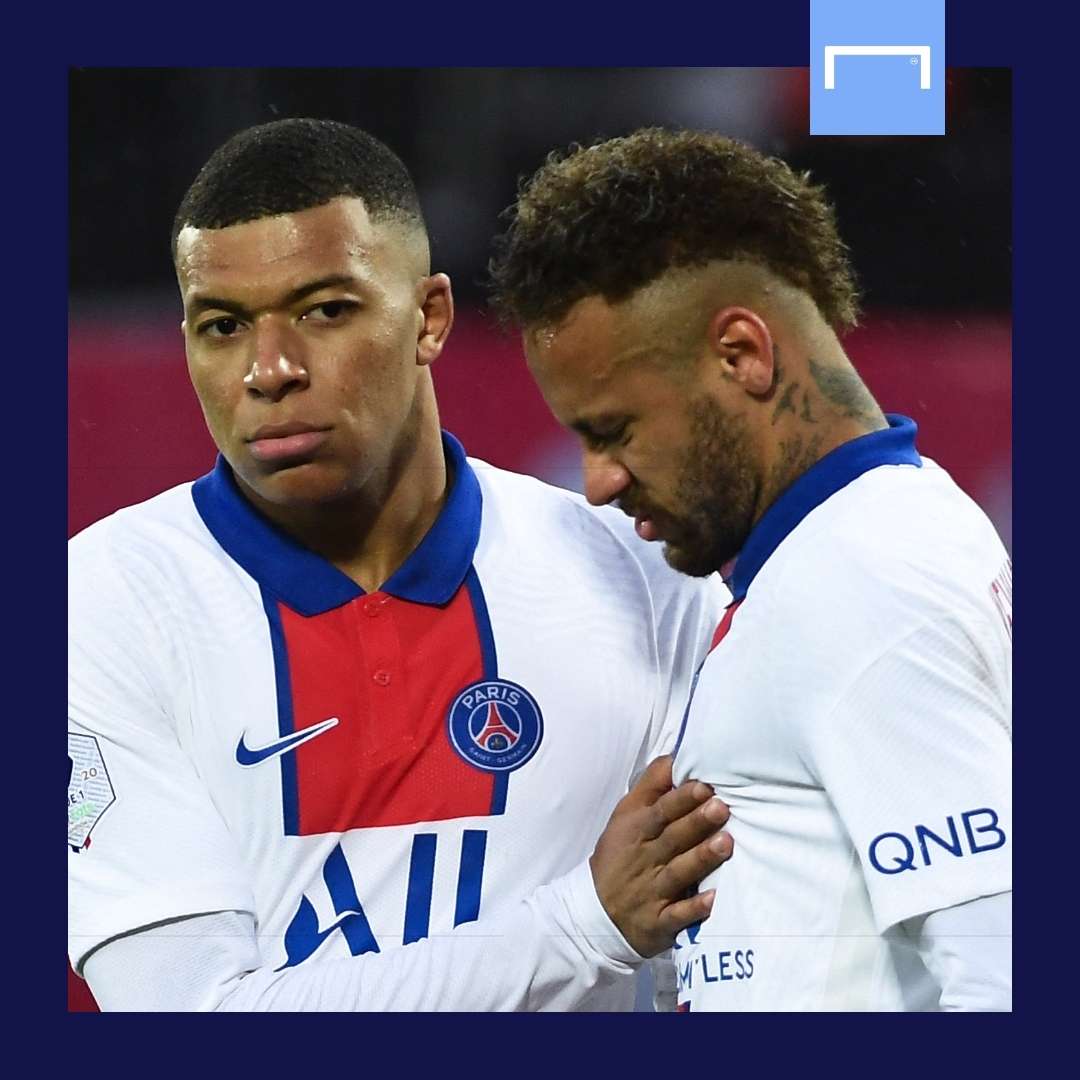 Getty/Goal
Getty/GoalThe changes had the desired impact, with PSG reaching the Champions League final for the first time, in August 2020.
Last season, though, they were eliminated by Manchester City in the last four and that disappointment led to another transfer splurge, one that arguably eclipsed what unfolded in the French capital in 2017.
PSG actually spent less money on transfer fees this time around but committed millions of euro to lucrative contracts to land only Messi on a free, but also Sergio Ramos, Gigi Donnarumma and Gini Wijnaldum, making this the most incredible summer of recruitment the game has ever seen.
Indeed, with full-backs Achraf Hakimi and Nuno Mendes having arrived from Inter and Sporting CP, respectively, Mauricio Pochettino's squad appears to have no weak links. In terms of realising their Champions League dream, PSG could not be in a more powerful position.
But then again, the same goes for Al-Khelaifi.
Not only did PSG manage to improve their squad at a time when most clubs were struggling with the economic fallout of the Covid-19 pandemic, the president also ended up in a much stronger position among the leading figures in world football after the chaos caused by the attempted European Super League (ESL) breakaway.
While 12 of the continent's top clubs threw their weight behind the new competition, PSG refused to join, with Al-Khelaifi instead siding with UEFA president Aleksander Ceferin.
After the ESL collapsed, Juventus president Andrea Agnelli was removed as chairman of the European Club Association (ECA) and replaced at the helm by Al-Khelaifi.
He had actually been reluctant to take on the roll. The ECA had wanted someone from those who had rallied against the ESL rebels to take over but Al-Khelaifi took a couple of days of convincing because of his already heavy workload.
Of course, the mere fact that he had such support from his peers underlined just how far both Al-Khelaifi and PSG have come over the past decade.
"PSG and Al-Khelaifi were very well-informed regarding the Super League situation and didn't want to rush into any commitments towards something like that," Johnson reveals.
"I think it's quite telling that Bayern Munich, a club that have looked down on PSG over the years despite the fact that they had Qatari sponsorship links themselves, were quite grudgingly respectful towards PSG and the stance that they took on the Super League.
"At the end of the day, PSG don't want to see a closed shop; they do want competition. Let's not forget, PSG haven't walked all over the competition since they arrived in France. They were beaten by Montpellier at the start, there was Monaco in 2017 and then Lille last season.
"So, there have been times that they haven't had things all their own way and Nasser welcomes the challenge. He wants Ligue 1 to grow, to become a more competitive, respected competition.
“One thing I would say, that’s unanimous among those who've come across him, is that he's very, very charismatic. He's a very engaging man, essentially the ideal modern leader of a club.
"Even when there have been issues of rivalry, look at the domestic scene with Lyon and Jean-Michel Aulas, no matter how many times they clash, Aulas always makes a point of saying how much he respects Nasser and considers him a modern-thinker. Aulas kind of views him as the kind of leader he'd like to be if he were younger.
"So, it definitely reflected well on Al-Khelaifi and PSG as a club that they came out on the right side of the failed Super League breakaway."
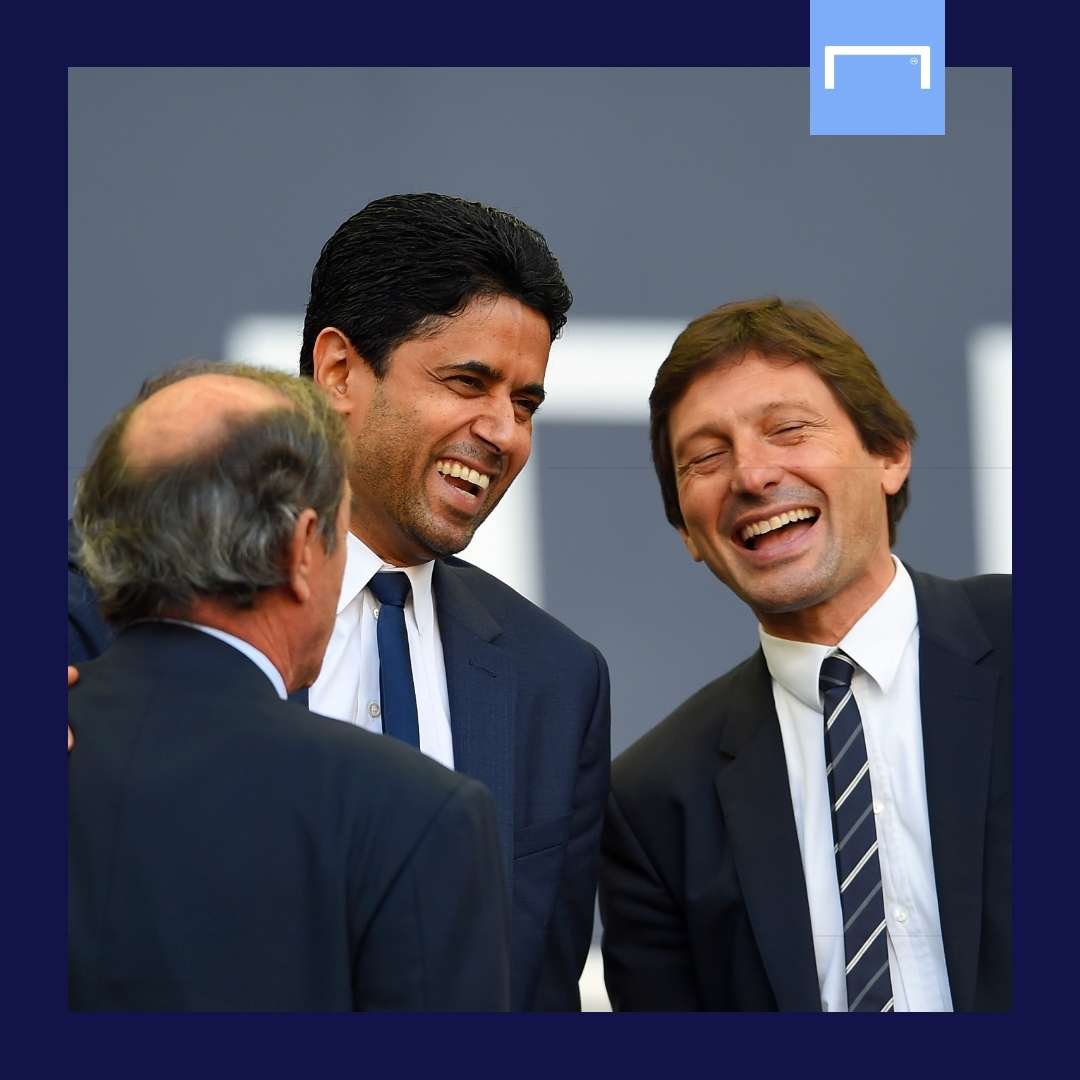 Getty/Goal
Getty/GoalIndeed, many observers were suddenly asking themselves if PSG had suddenly become the 'heroes' of European football?
Furthermore, while Al-Khelaifi and the club continue to come under attack from the heads of rival clubs and leagues, PSG are immensely proud of the way in which they have transformed a relatively small enterprise they acquired for €70m (£60m/$83m) in 2011 into a major brand that Forbes estimates will be worth €2.2bn (£1.9bn/$2.6m) in another 10 years.
They have never made any attempt to hide the fact that a club formed in 1970 cannot boast the same history or pedigree as the traditional powers of European football but they believe that their rivals are now looking to them for inspiration when it comes to expanding their own brands.
PSG view themselves as 'the club of the new generation' because of the way in which they have tapped into the tastes of younger people. Ten years ago, for example, they had 500,000 followers. That's now shot up to 140 million, and counting. Indeed, they picked up an additional 25 million followers alone after Messi's arrival.
PSG argue that their surge in popularity isn't just down to star signings, though. They feel they are connecting and engaging with younger football fans in very different ways to other clubs. They target specific markets in specific ways. For example, in Japan, where they have three standalone stores, they work with local designers to produce high-quality gear that appeals to Japanese youngsters.
Al-Khelaifi, though, remains adamant that PSG are a French institution first and foremost. In meetings with Nike, he has been known to request the addition of symbols or flags related to France or Paris to remind everyone of this global brand's roots.
He even demanded that the food provided in the VIP area at the Parc des Princes come from the very best French caterers. When he hosts dinners, meanwhile, he chooses both the restaurant and the chef. Again, everything needs to be perfect and to reflect the very best that France has to offer.
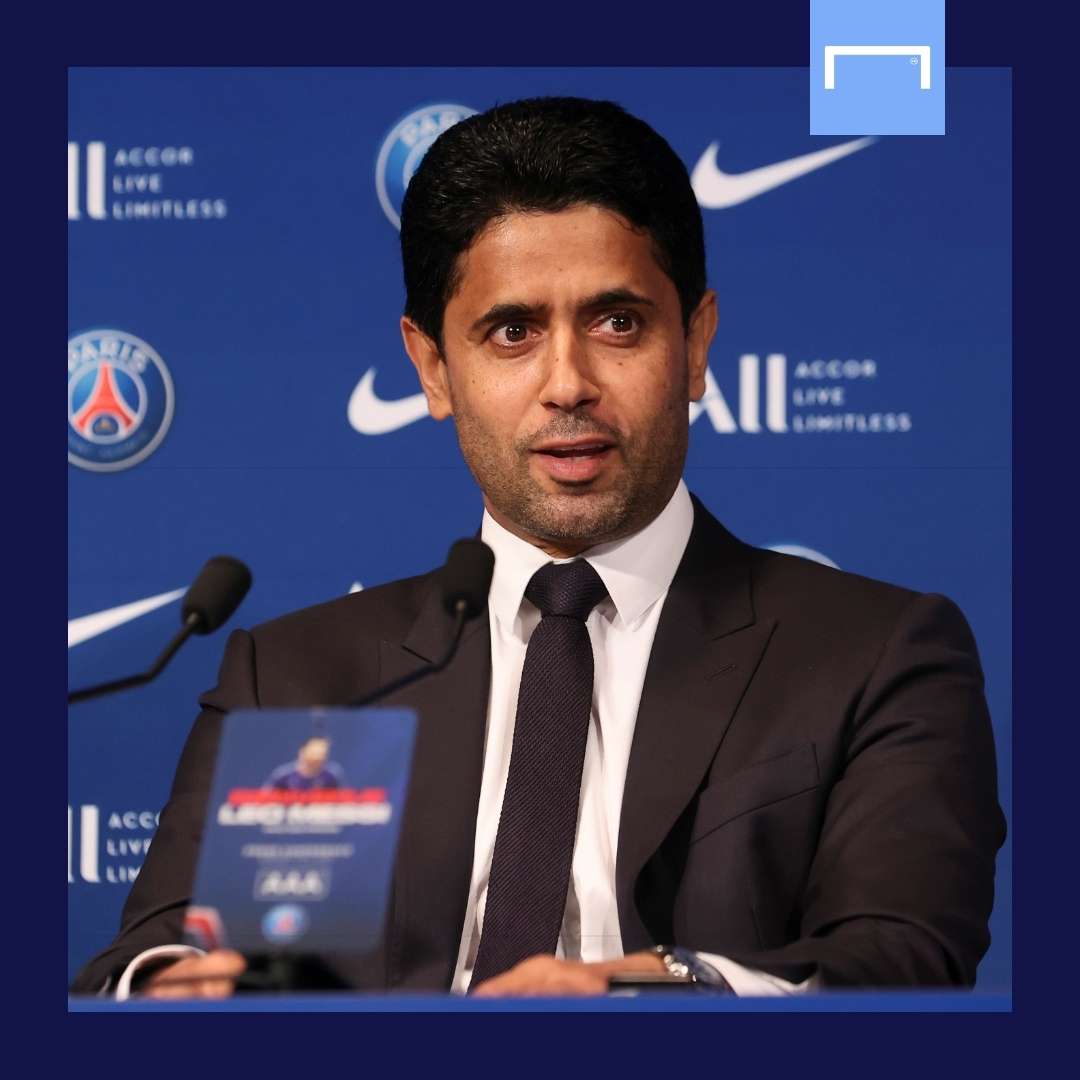 Getty/Goal
Getty/GoalThe net result is that more and more celebrities are turning up to games wearing club merchandise, and, not because they've been paid to promote PSG – something the club says it never does – but because they like the brand.
Again, they are aware that their aggressive, unique approach to marketing and expanding the club has upset some members of the old order but they believe that it's working precisely because it's different.
Of course, PSG are fortunate in that they have an extremely wealthy benefactor. Not every club can count on such incredible levels of financial support.
"You have to keep reminding yourself that PSG is owned by the state of Qatar, as is the beIN Sports group, who also happens to be UEFA's biggest customer, paying them billions in TV rights over the years," Panja says.
"And Nasser Al-Khelaifi happens to be the chairman of the beIN Sports group, and, as we know, he's also the president of PSG.
"He's now been elevated to the UEFA executive committee, the most powerful board in European football. Now, it would be strange in other industries for your customer to be on your board but there you go."
Of course, after the summer's extravagant outlay on new players, more questions were asked about PSG's adherence to FFP.
Again, though, Al-Khelaifi insists that the club has always abided by the rules, telling reporters at Messi's unveiling: "Regarding the financial aspect, I will make it clear: we know the rules of Financial Fair Play and we will always follow the regulations.
"Before we do anything, we check with our commercial, financial and legal people. We have the capacity to sign him. If we sign Leo, it's because we can, otherwise we would not have done it."
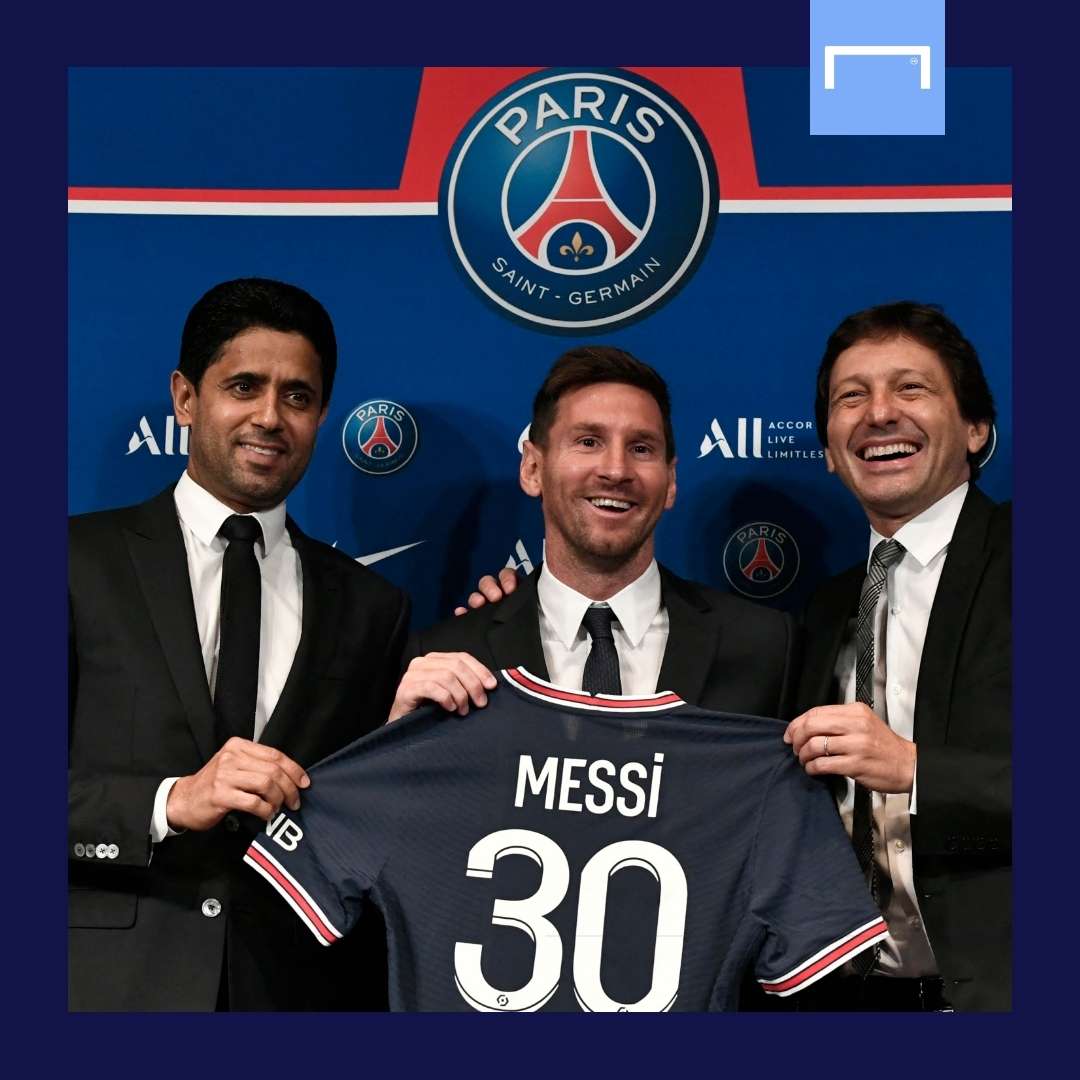 Getty/Goal
Getty/GoalWith Messi now on board, there appears to be little standing in the way of PSG realising their decade-long dream of lifting the Champions League.
But what will happen post-Qatar 2022? There have been suggestions that the entire project will either come to a sudden halt, or at least wind down.
Al-Khelaifi, though, is now in such a position of power that surely he'd be loath to give it up in just over a year's time? Surely he's here to stay as a major player in the global game? Surely he's proven himself one of football's top administrators?
"You can't look beyond the fact that he's spending oodles of money," Panja argues. "Football's not a very sophisticated industry. Power often resides with those who have money. And that's where the money is being spent.
"But it's hard to know what will happen next. It could go on forever, or it could immediately stop. It's all based on the decision of one guy: Tamim bin Hamad al-Thani."
Al-Khelaifi, though, shows no signs of slowing down. Sources say the project is still moving at 100 miles an hour and that the president remains the driving force behind the whole project.
He has repeatedly stated that the Qatari ownership is here to stay and the sheer scale of the investments that they are still making in the club would appear to support that claim.
They're building a new state-of-the-art training centre which will be ready in 2023 or 2024 and also intend to begin completely renovating the stadium soon after.
There's an acknowledgement that Al-Khelaifi still has plenty on his plate but it's said that he remains as hungry as ever to continue shaping the future of PSG, and European football in general.
So, while he may not have been present at that era-defining lunch in Paris 11 years ago, he's most definitely dining at Europe's top table now.
